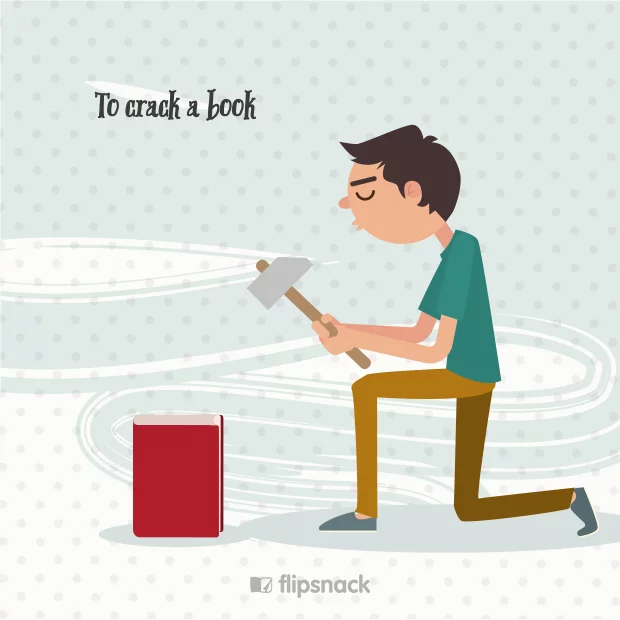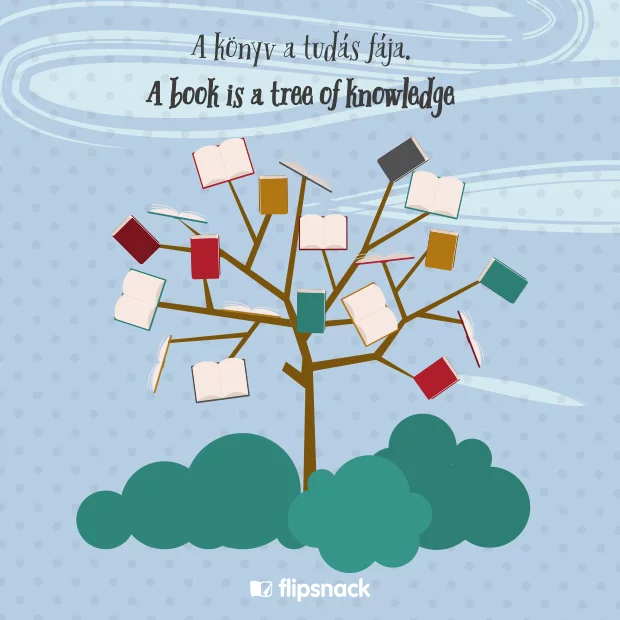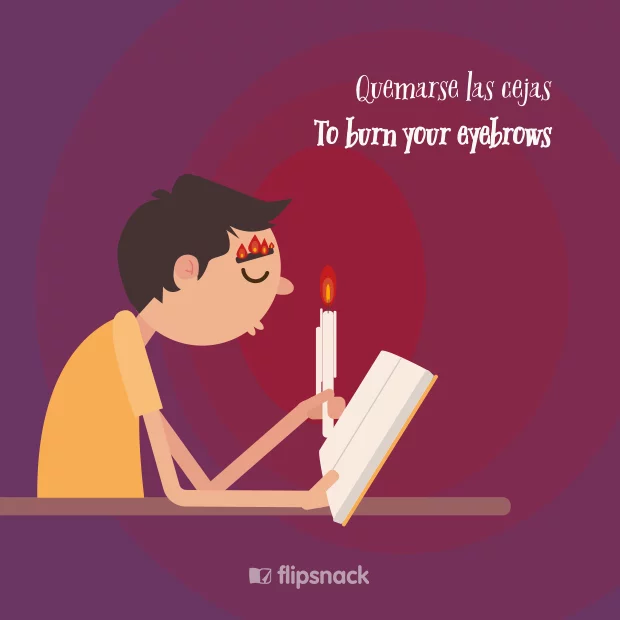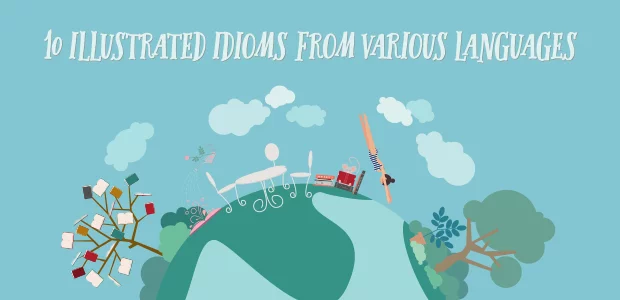10 illustrated idioms about books and reading, from various languages
We rarely think about the literal meaning of idioms in our mother tongue. But when you learn a new language idioms will always get your attention, puzzle you or make you laugh. Some of them make sense the moment you hear them, while others need a little bit of explaining.
Personally, I think idioms are the gems of a language. I’ve always been fascinated by them.
Which is why I collected 10 idioms about books and reading, from various languages. We thought it would be a fun idea to illustrate the literal meaning of these idioms. The actual, figurative meaning of each phrase is explained below the illustration.
If you can contribute to this article by sharing with us more idioms on the same topic, please write us a comment.
We might add new illustrations based on your submissions!
1. English: “To crack a book”
Actual meaning: to open a book to read or study

2. Romanian: “Ai carte, ai parte”
Literal meaning: you have a book, you have a share
Actual meaning: knowledge is power

3. Hungarian: “A könyv a tudás fája”
Literal meaning: A book is a tree of knowledge
Actual meaning: Books help readers discover new things and aquire knowledge

4. French: “Un roman à l’eau de rose”
Literal meaning: a rose water novel
Actual meaning: a sentimental novel

5. Spanish: “Quemarse las cejas”
Literal meaning: to burn your eyebrows
Actual meaning: to read or study a lot

6. Italian: “Buttarsi a capofitto nei libri”
Literal meaning: to dive in the books head first
Actual meaning: to immerse yourself into reading

7. Chinese: 书是随身携带的花园
Literal meaning: a book is like a garden carried in the pocket
Actual meaning: books can help you relax and forget about the rest of the world

8. Spanish: “Ratón de biblioteca”
Literal meaning: library mouse
Actual meaning: a person who loves reading (a bookworm)

9. Hungarian: “Könnyebb a könyv a pörölynél.”
Literal meaning: the book is lighter than a sledgehammer
Actual meaning: it’s easier to do intellectual work than physical work

10. Romanian: “A vorbi ca din carte”
Literal meaning: to talk like you’re from a book
Actual meaning: to speak like an intellectual

Now it’s your turn! Do you know other idioms about books or about reading?
Which one of these idioms is your favorite?




In german we have the bookworm (Bücherwurm) and a reading rat (Leseratte)
Also in Spain we say you mustn’t judge a book from it’s cover (no hay que juzgar un libro por su portada).